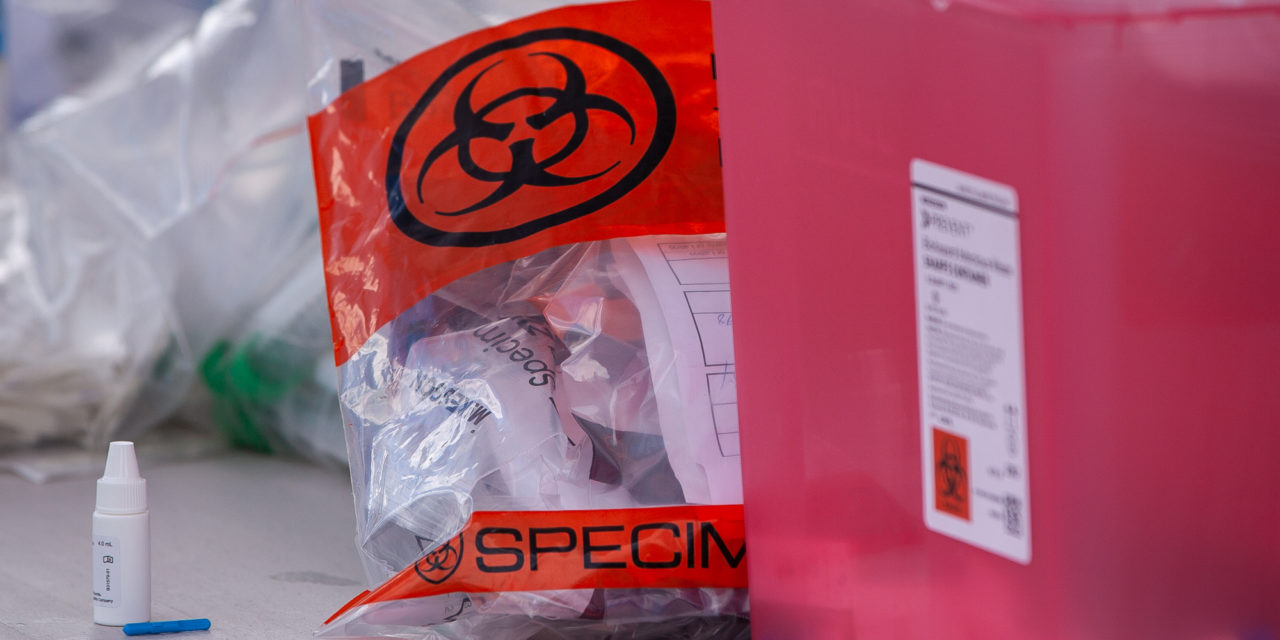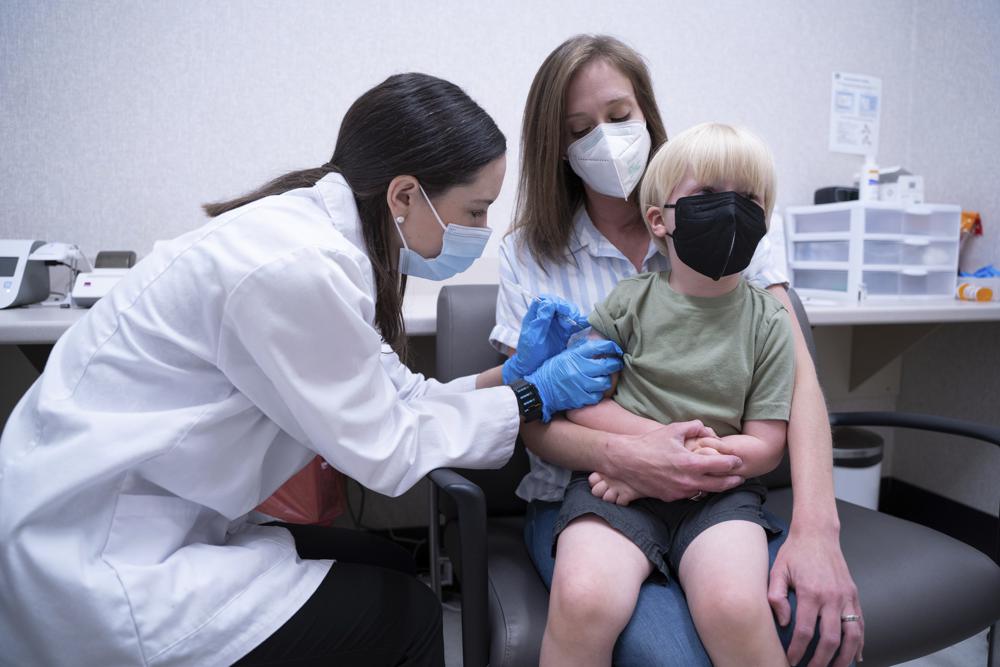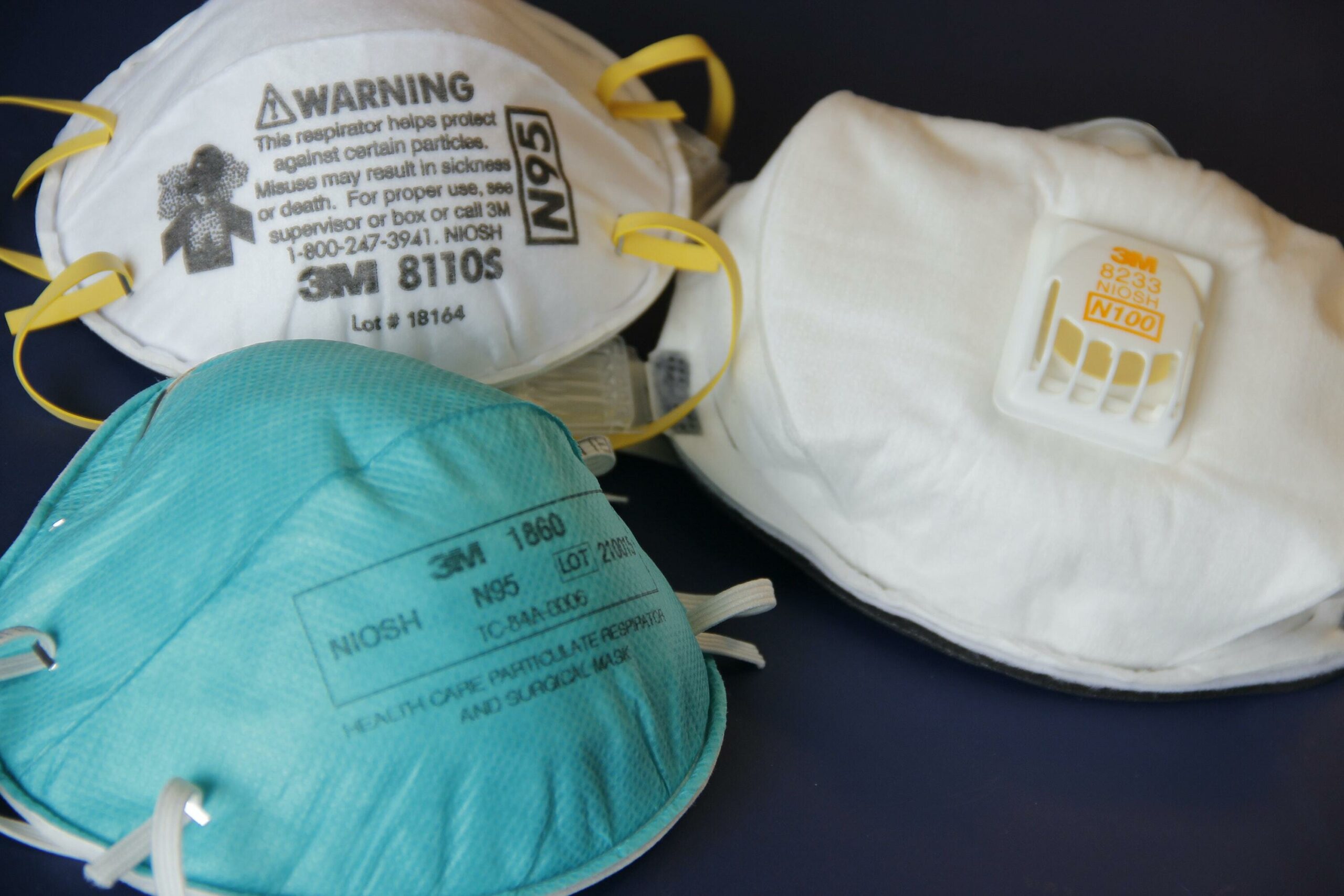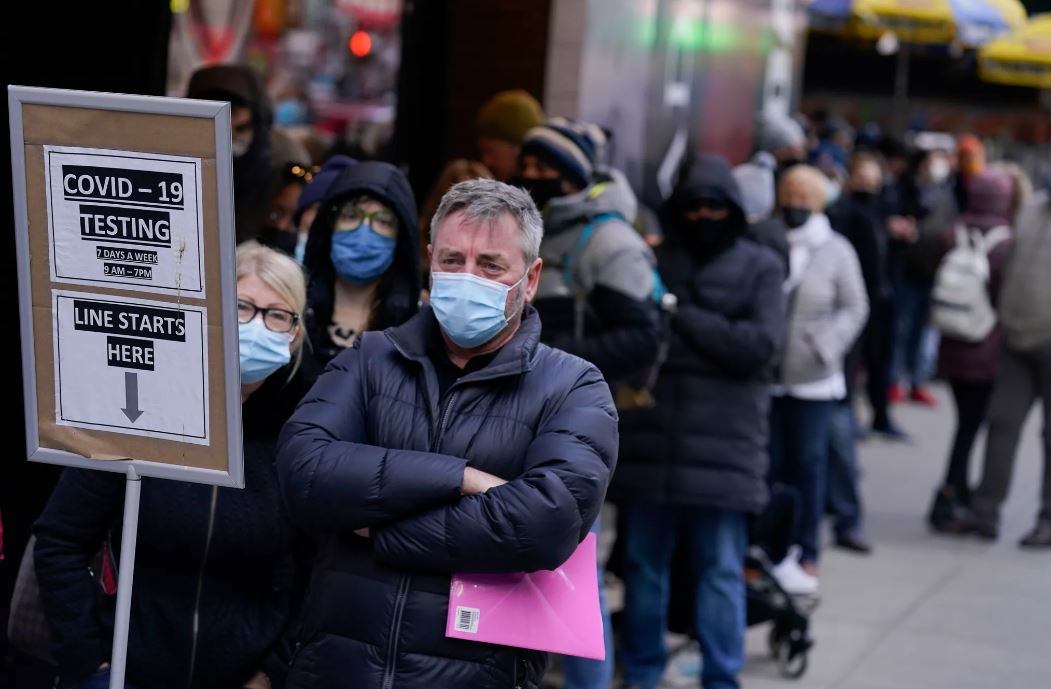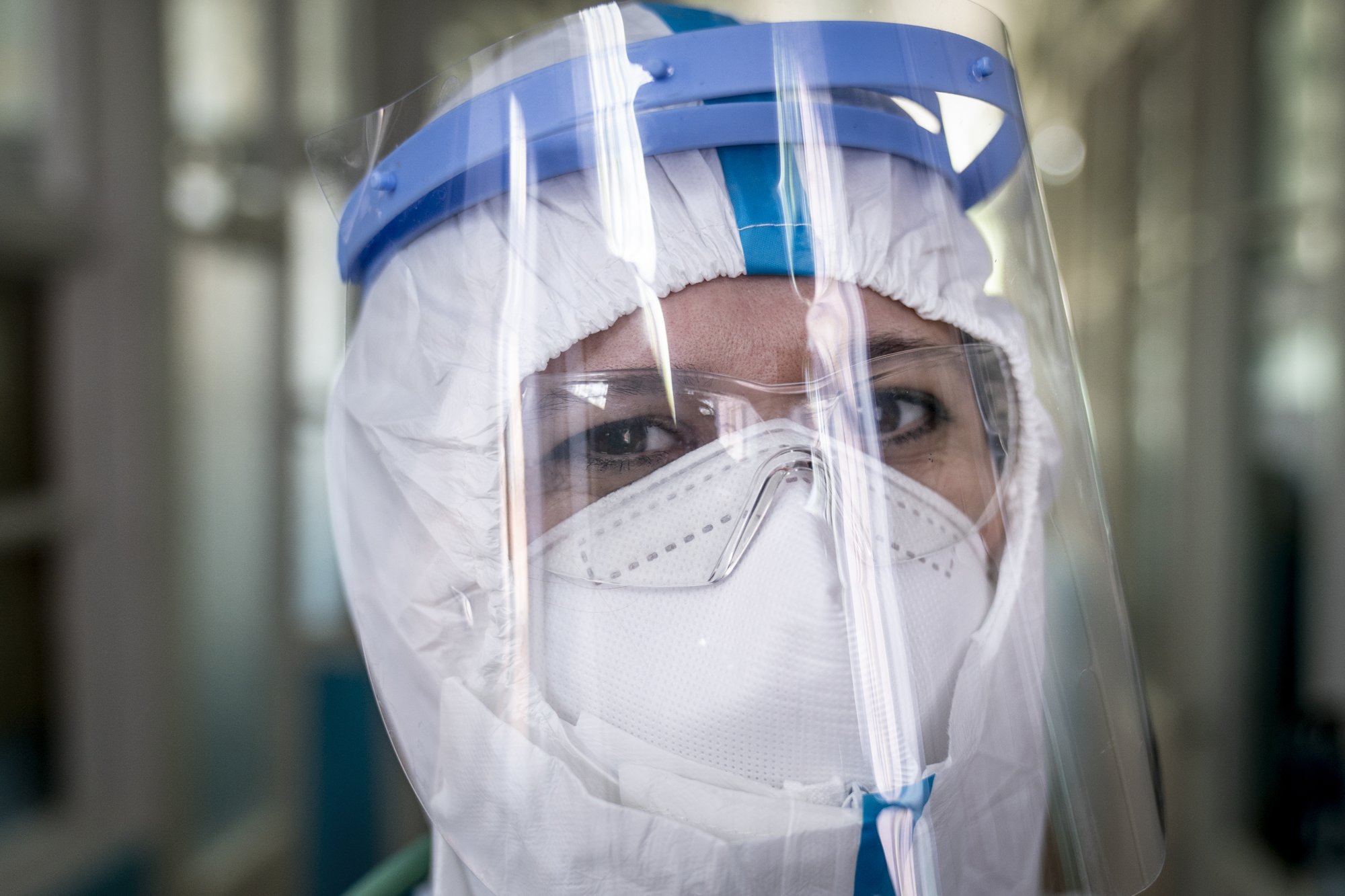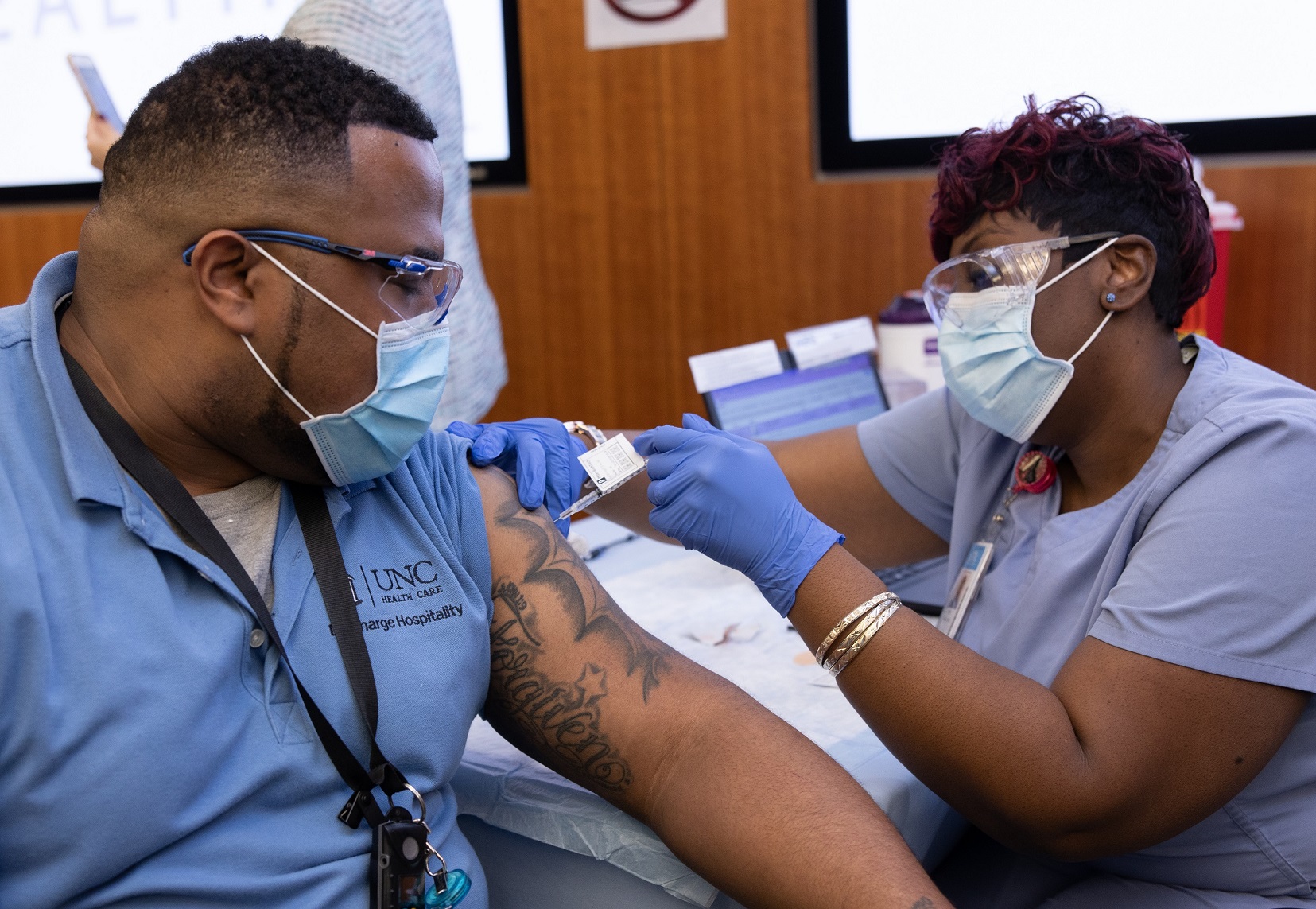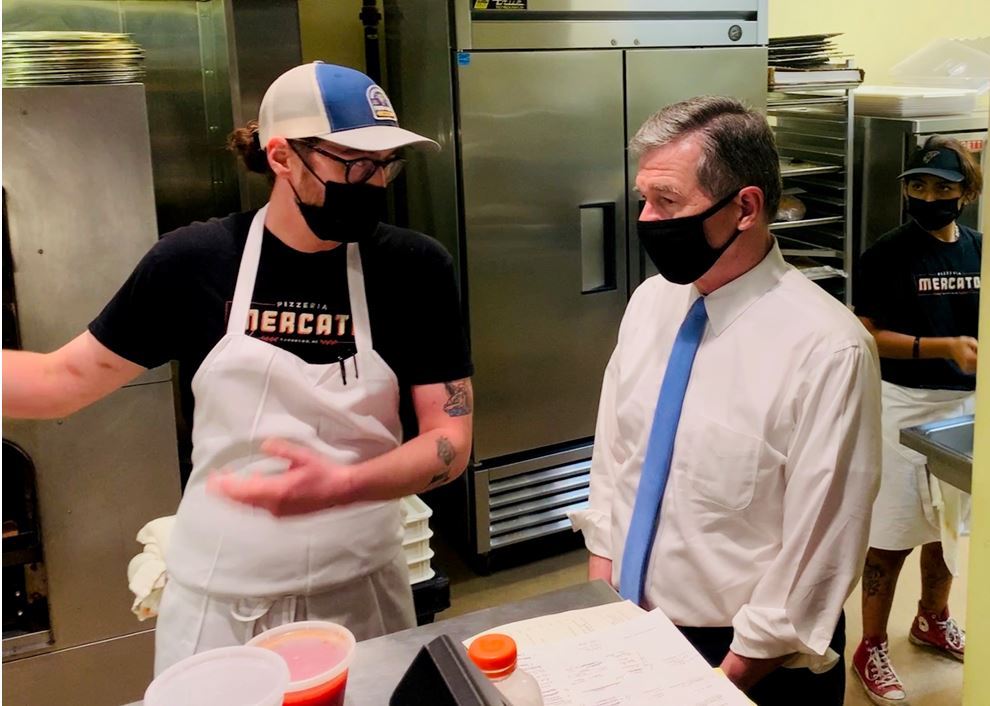Throughout the COVID-19 pandemic, local governments across the state have been working to keep their residents informed, get shots into arms, and educate on best practices to mitigate virus spread.
Director of the Chatham County Health Department Mike Zelek recently spoke with 97.9 The Hill about COVID trends, county vaccination rates, and looking ahead to the new year.
Roughly two years into the pandemic, the COVID-19 response locally and nationally continues to change as new variants emerge and cases spike.
Most recently, omicron has raced ahead of other variants and is now the dominant version of the coronavirus in the U.S. The newest “variant of concern,” as determined by the World Health Organization, now accounts for 73 percent of new infections according to federal health officials last week.
This new variant is causing another spike in cases in the state, the last of which was seen in late August by the delta variant; however, Zelek said this rise in cases isn’t unexpected.
“For us, we saw this last year in winter,” Zelek said. “As you get into the holiday season, as you get into the colder weather, cases tend to rise. That’s what we see with other respiratory viruses as well. So, I don’t think that’s a surprise.”
Zelek said what is surprising, however, is just how quickly the omicron variant is spreading as compared to other versions of the virus.
The Centers for Disease Control and Prevention numbers showed nearly a six-fold increase in omicron’s share of infections in only one week. Since the end of June, the delta variant had been the main version causing U.S. infections. As recently as the end of November, more than 99 percent of coronaviruses were delta.
“That’s a pretty rapid increase that reflects just how it infectious this virus is,” Zelek said. “Now that’s not a reason to panic. From where I sit as a practitioner, as a health director we want to tell people what they can do – and what you can do is get vaccinated, you can get boosted, and wear a mask in indoor public places.”
Per data from the North Carolina Department of Health and Human Services, 58 percent of the total population in North Carolina is fully vaccinated. In Chatham County 54 percent of the population is fully vaccinated. While that isn’t far off from the state average, it is significantly lower compared to a 74 percent vaccination rate in Orange County, 70 percent in Wake and 68 percent in Durham.
Despite lower-than-average numbers, Zelek said the county is still seeing a steady demand for COVID vaccinations, especially as more people became eligible for boosters and more kids get their shots.
“In terms of the five to 11 age group vaccinations, our most recently eligible group, Chatham is in the top six [counties] in the state,” Zelek said. “That is about 26 percent of five- to 11-year-olds that have rolled up their sleeve at least once for that first dose.”
Vaccinations aren’t the only tool to help fight severe illness from COVID-19. On Wednesday, U.S. health regulators authorized Pfizer’s antiviral pill, Paxlovid, to treat the virus.
The drug is a faster, cheaper way to treat early COVID-19 infections, although initial supplies will be extremely limited. Initial data shows a nearly 90 percent reduction in hospitalizations and deaths among patients most likely to get severe disease. All previously authorized drugs against the coronavirus required an IV or an injection.
While these new therapeutic options and drugs are a testament to scientific advancement, Zelek said we would not be where we were today without the COVID vaccine — which began rolling out to frontline workers a year ago.
He said vaccines will continue be essential as new variants emerge and cases continue to spike. This has already proven to be the case during the delta surge late-summer.
“As hard as it was with cases, as many folks ended up in the hospital and sadly some deaths, if we didn’t have the vaccine, it would’ve been a completely different situation,” Zelek said. “A recent study showed that a projection of 1.1 million additional deaths would’ve likely happened if we didn’t have vaccinations.”
As we finish out the holiday season and head into the new year, Zelek said it’s important to take this time to remember how connected we all are – and what it will take to look out for our neighbors.
“We know this has been a challenging time and a challenging couple years for everyone,” Zelek said. “What I hope as we come out of it is that we can remind ourselves that we’re all part of the same community. That we’re all in this together, that we all want what’s best for ourselves, for our families, and our loved ones and as we move forward, we continue to focus on that.”
Chapelboro.com does not charge subscription fees. You can support local journalism and our mission to serve the community. Contribute today – every single dollar matters.

